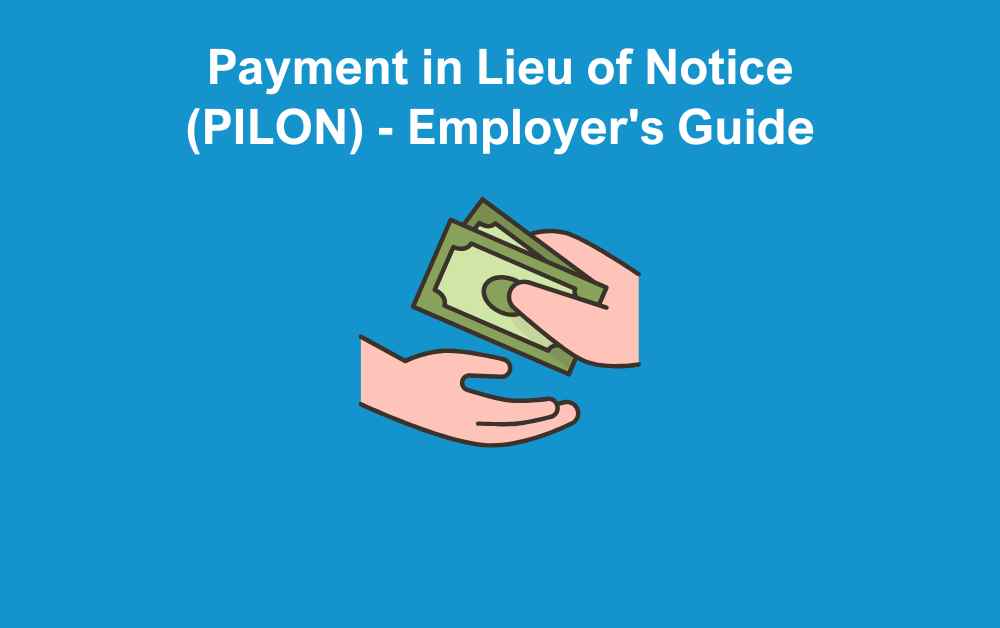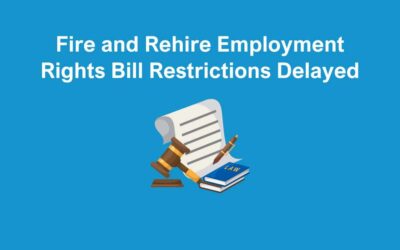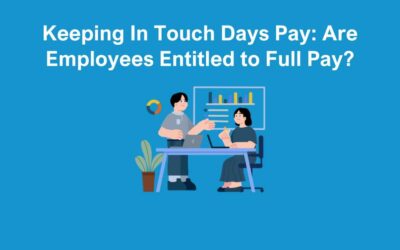When an employment relationship ends, the nuances of the final settlement can be complex and fraught with legal implications. One such aspect is Payment in Lieu of Notice (PILON). Understanding PILON, how it is calculated, and the impact on employee entitlements, such as holiday accrual, is essential for managing terminations effectively and within the law. We will focus on:
- What is Payment in Lieu of Notice?
- Difference Between PILON and Garden Leave
- Statutory Entitlement
- How Is PILON Calculated?
- Do Employees Accrue Holiday During Their Notice Period?
- Key Considerations for Employers
- How The HR Booth Can Help
What is Payment in Lieu of Notice?
This refers to compensation paid to an employee when their employment is terminated without them working their notice period. Instead of requiring the employee to serve out their notice, the employer provides a financial payment equivalent to the notice period they would have worked. This arrangement can be included in the employee’s contract or agreed upon at the time of termination.
PILON is often used to:
- Allow for immediate termination while still meeting contractual obligations.
- Maintain confidentiality or security when an employee’s continued presence might be disruptive.
- Avoid potential conflicts in the workplace during the notice period.
Employers must ensure that the terms for payment in lieu of notice are clearly stated in the employment contract to avoid potential claims of breach of contract or unfair dismissal.
Difference Between PILON and Garden Leave
PILON and garden leave both deal with managing notice periods but differ in how they are applied:
Garden Leave: The employee remains employed during their notice period but is not required to work. They continue receiving their regular salary and benefits. Garden leave is typically used to restrict access to sensitive information or prevent an employee from joining a competitor.
Payment in lieu of notice: Employment ends immediately, and the employee receives a lump sum payment covering their notice period. This payment may include salary and other contractual benefits, depending on the terms. This is often used when the employer wants to remove the employee from the business immediately.
The main distinction is that PILON ends employment straight away, while garden leave keeps the employee on the payroll until the notice period ends.
Statutory Entitlement
Employers must provide employees with the notice they are entitled to, either statutory or contractual.
Employees with over one month’s service are entitled to a minimum statutory notice period when their employment is terminated. Statutory notice rules require:
- One week’s notice for every full year of employment, up to a maximum of 12 weeks.
- For employment lasting more than four weeks but less than one year, one week’s notice is required.
Employees may also be entitled to a longer notice period under their employment contract. Contractual notice cannot be shorter than the statutory entitlement.
How Is PILON Calculated?
The amount of payment in lieu of notice is typically based on the employee’s basic salary for the notice period. However, it can also include additional benefits, depending on the terms of the employment contract.
When calculating, employers should consider:
- Contractual Obligations: If the contract specifies PILON, it may outline exactly what is included, such as salary, bonuses, commissions, and benefits.
- Statutory Minimum: In the absence of this, the payment must at least cover what the employee would have earned during their statutory notice period.
- Tax and National Insurance: payment in lieu of notice is subject to tax and National Insurance contributions, so ensure the correct deductions are made.
For example, if an employee’s monthly salary is £3,000 and they have a two-month notice period, the PILON would generally amount to £6,000. Any additional contractual benefits, such as pension contributions or car allowances, should also be factored in where applicable.
Do Employees Accrue Holiday During Their Notice Period?
One frequently asked question is whether employees continue to accrue holiday entitlement if they receive PILON. The answer largely depends on how the notice period is managed:
- If the employee works their notice: Holiday entitlement continues to accrue as usual.
- If the employer pays Payment in lieu of notice: Holiday accrual usually stops at the date of termination unless the employment contract states otherwise.
However, employers should ensure that any accrued but unused holiday entitlement up to the termination date is paid out as part of the final settlement. Failure to do so could lead to legal disputes.
For example, if an employee had accrued five days of unused holiday at the time of termination, these should be paid in addition to the PILON amount. Calculations should be based on the employee’s daily rate of pay.
Key Considerations for Employers
- Include a Payment in lieu of notice clause in contracts: This allows greater flexibility and clarity when terminating employment.
- Communicate clearly: Ensure employees understand how this is calculated and what it includes.
- Stay compliant: Follow statutory rules and contractual obligations to avoid potential legal claims.
- Document everything: Keep a record of how PILON and any holiday pay were calculated to address any disputes that may arise.
How The HR Booth Can Help
At The HR Booth, we understand that managing pay in lieu of notice (PILON) can be complex. This is particularly clear when navigating statutory and contractual requirements. We offer expert guidance and tailored support to ensure you handle this correctly and compliantly.
Here’s how we can assist:
- Reviewing Employment Contracts: We can review and update your contracts to ensure clarity around this clause. This includes when it takes effect and how payments are calculated. This minimises ambiguity and reduces the risk of disputes.
- Compliance Advice: Our team provides expert advice on statutory and contractual notice entitlements. We ensure you meet legal obligations and avoid non-compliance risks.
- Tailored Solutions: We can help you assess whether payment in lieu of notice is the best option for your business in specific situations, ensuring decisions align with your policies and operational needs.
- Drafting Written Notices: We can assist with drafting clear and legally compliant PILON notices, reducing the risk of errors or misunderstandings.
- Managing Sensitive Discussions: Where required, we can support you in managing conversations with employees to ensure professionalism and sensitivity.
- Ongoing Support: From initial advice to resolving disputes, we are on hand to support your business with every step of the process.
By working with us, you can handle payment in lieu of notice with confidence as your legal and contractual obligations are fully met. If you would like support from our experienced HR Consultants, contact us now.







